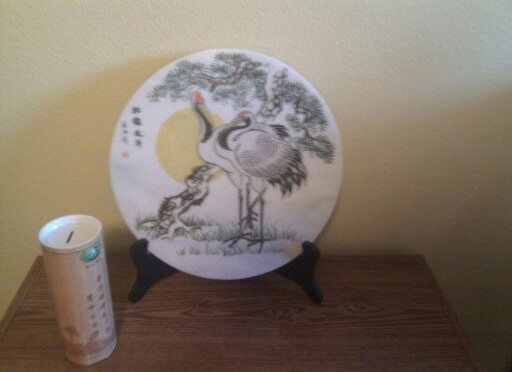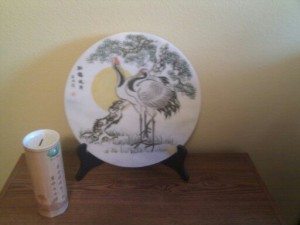When preparing to write on a Buddhist topic, I first read what others have to say on the subject. Then I try to find something original to say that might be eye-opening and helpful to a reader. I found one of the clearest, well-written discussions ever on the six paramitas while preparing to write this blog. After reading the discussion of the first paramita, I thought I had nothing to add. So I decided not to write anything on the first paramita but to read what that great writer had to say about the second paramita and to perhaps add something to that discussion.
I was blown away while reading the insightful, very deep comments on the second paramita. I realized with a thud that the writer had no clue about any of the paramitas. The phrase: “While preparing a yummy fish stew…” stopped me cold. The first precept of Buddhism is to live and let live, to avoid killing other sentient beings. The first paramita, that of generosity, has the same deeper meaning. Greed kills, generosity doesn’t.
The author was one of those stupid people who justifies their killing of sentient beings by saying: “Even those who choose to be vegetarians kill when they eat a plant.” That discredited argument, following the comment about the yummy fish stew, told me all I needed to know about that deluded author. If we don’t know the difference between a sentient being and a plant, our stupidity rivals the immensity of the universe.
After all, that anti-vegetarian argument actually equates the murder of a person to the eating of a banana.
These people argue that they have transcended the petty concerns of vegetarians because they are so enlightened. The fact is that no enlightened master kills animals for food. A killer of animals has not even transcended his petty greed, much less transcended all right and wrong.
Everyone knows that each and every one of the Buddha’s teachings can be understood on three levels, i.e., the mundane, the intellectual, and the sublime (I don’t like the word “spiritual.”) At the mundane level, at least in Asia where Buddhism is actually practiced, people go to a temple, drop money into the temple collection box, and pray for sons while waving incense in the air. Then they stick the incense sticks in a large ash-holding pot and go on their merry way. Intellectuals practice generosity by giving money to good causes. At the sublime level, people generously allow other animals to live and don’t cling to a self-identity.
Greed is the opposite of generosity and if you kill fish so that you can satisfy your lust for something yummy, you are clueless as to what generosity really means. Killing animals for food is a clear manifestation of greed.
I saw a movie on Netflix a couple of nights ago that included a scene at a famous Zen center. The world-famous Roshi led the meal chant: Let us be grateful to the animals who gave us their lives so that we might enjoy this meal.
Gave? Those animals did not give their lives away. You took their life from them so that you could feed on their flesh. They were healthy and alive and you killed them. Thank you, dear animal, for giving your life to me. I wish I was British so I could say: Such bloody rubbish!
Tibetans keep large herds of reindeer. When an animal of the herd passes away from natural causes, they eat it. Obviously, there is nothing wrong with that (we are not talking about whether or not eating meat is a healthy practice). But if someone kills a healthy member of the herd to convert it into food, that violates the first precept and is a greedy act which is contra to the first paramita of generosity. It’s hard to think of a greater manifestation of greed than killing a healthy animal so that you can eat it.
Paramita is translated in two ways, the first meaning being “perfection” and the second meaning being “passing over to the other shore.” The “other shore” is enlightenment. If the six perfections are practiced to perfection, the other shore is reached so the two meanings combine to mean each other.
A Tzu Chi cylinder is pictured in the photo above. Tzu Chi is a Chinese charity founded by Dharma Master Cheng Yen and you can read all about it at https://www.us.tzuchi.org/us/en/ We can build a generosity practice by contacting them, getting one of their cylinders, and putting a few coins in it every day. Although most people empty their cylinders each year at a Chinese New Year celebration, we can fill our cylinder for a year, count the money so collected, and send a check to the organization for that amount. They will not accept large checks and they want all checks to represent the small amount daily giving that was placed in a cylinder every day.
The idea behind the Tzu Chi daily contribution is to develop a habit of generosity. We can also make a monthly donation to the Buddhist Peace Fellowship or to great monks like Bhikkhu Bodhi, Ajahn Brahm and many others, and to the City of Ten Thousand Buddhas and other such Buddhist practice centers.
Such giving is made with no hope for reciprocity, unlike the temple donations that are made in the hope that the gods will bless the family with many sons. Such giving can thus be understood intellectually as a good antidote to greed. Teaching the dharma is another form of giving, another form of generosity.
But at the sublime level, being generous means letting go of the individual, inherently greedy self.
When that inherent greed dissipates, we will allow all sentient beings to die when it is their time to die, not when it’s dinner time for us.
The death of greed gives birth to generosity, and the flowering of generosity brings the other shore a little closer. It’s only the first paramita, but we can’t possibly practice the other five if we lack a foundation. And even if we have the skill to write beautifully on Buddhist topics, impressing all readers with the depth of our learning, our inherent greed exposes itself when we slip in a comment about yummy fish stew and claim that vegetarians are also greedy killers of sentient beings. Such bloody rubbish!
Here’s my call to action: Read The Food Revolution, develop generosity and respect for all life, and abandon the greed that kills animals and their killers.

